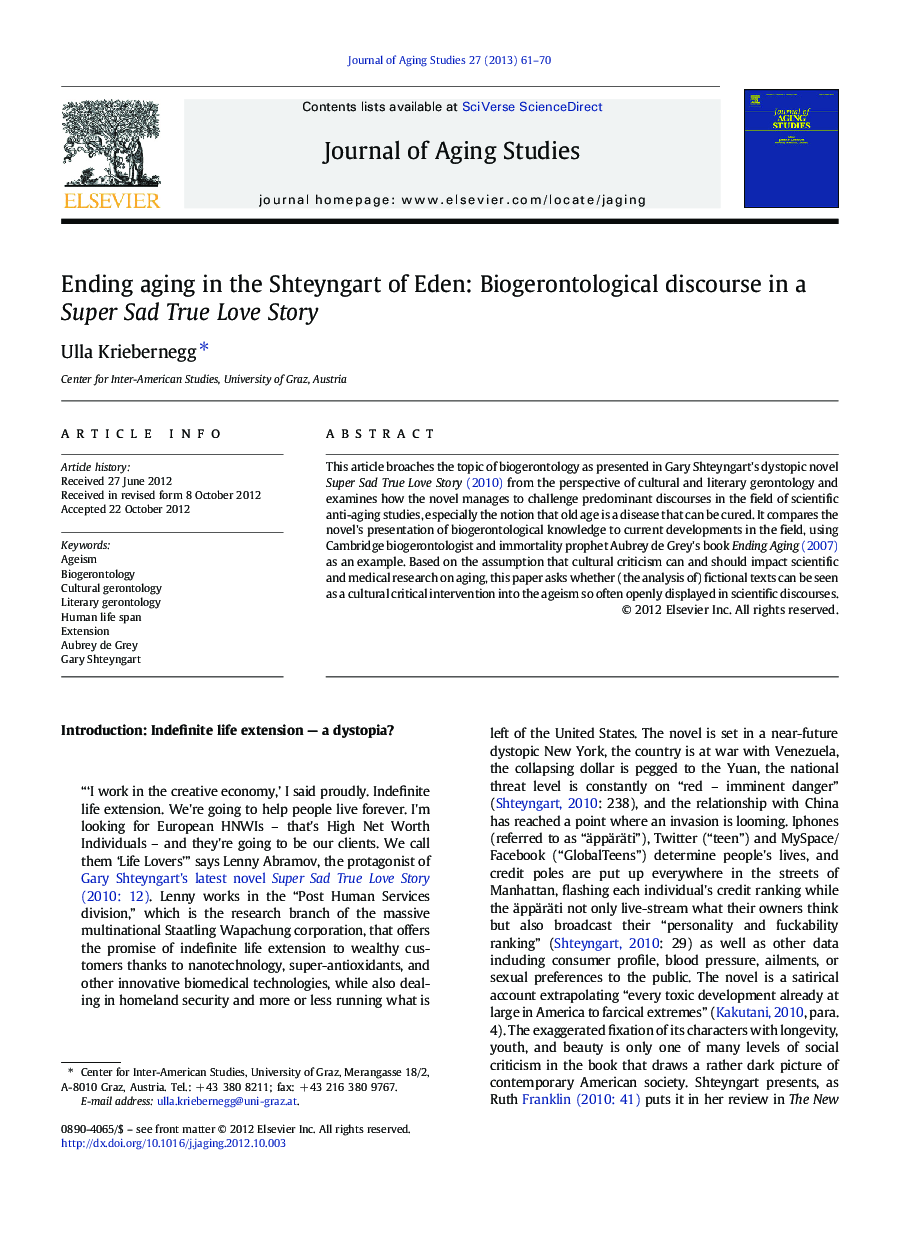| Article ID | Journal | Published Year | Pages | File Type |
|---|---|---|---|---|
| 1081958 | Journal of Aging Studies | 2013 | 10 Pages |
This article broaches the topic of biogerontology as presented in Gary Shteyngart's dystopic novel Super Sad True Love Story (2010) from the perspective of cultural and literary gerontology and examines how the novel manages to challenge predominant discourses in the field of scientific anti-aging studies, especially the notion that old age is a disease that can be cured. It compares the novel's presentation of biogerontological knowledge to current developments in the field, using Cambridge biogerontologist and immortality prophet Aubrey de Grey's book Ending Aging (2007) as an example. Based on the assumption that cultural criticism can and should impact scientific and medical research on aging, this paper asks whether (the analysis of) fictional texts can be seen as a cultural critical intervention into the ageism so often openly displayed in scientific discourses.
► Shteyngart’s novel Super Sad True Love Story (2010) uses biogerontological knowledge. ► This paper compares Gary Shteyngart’s novel to Aubrey de Grey's Ending Aging. ► Literary gerontology can be seen as a subversive intervention into biogerontology. ► Cultural gerontologists need to examine anti-aging science to counteract ageism.
